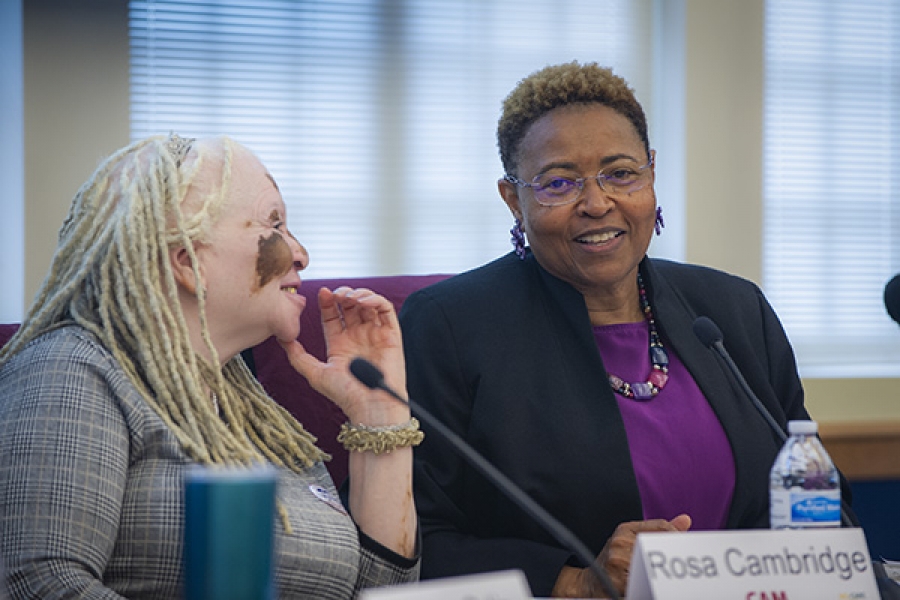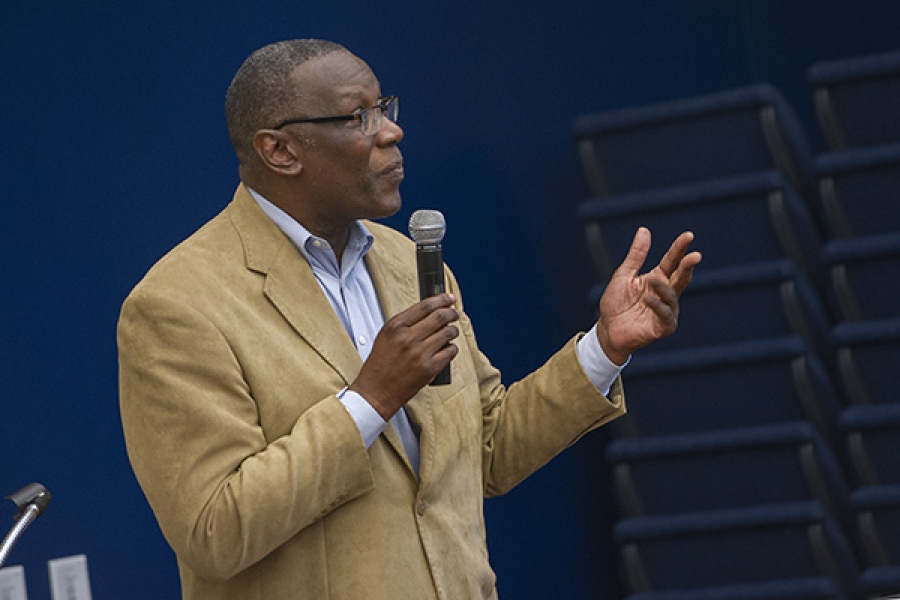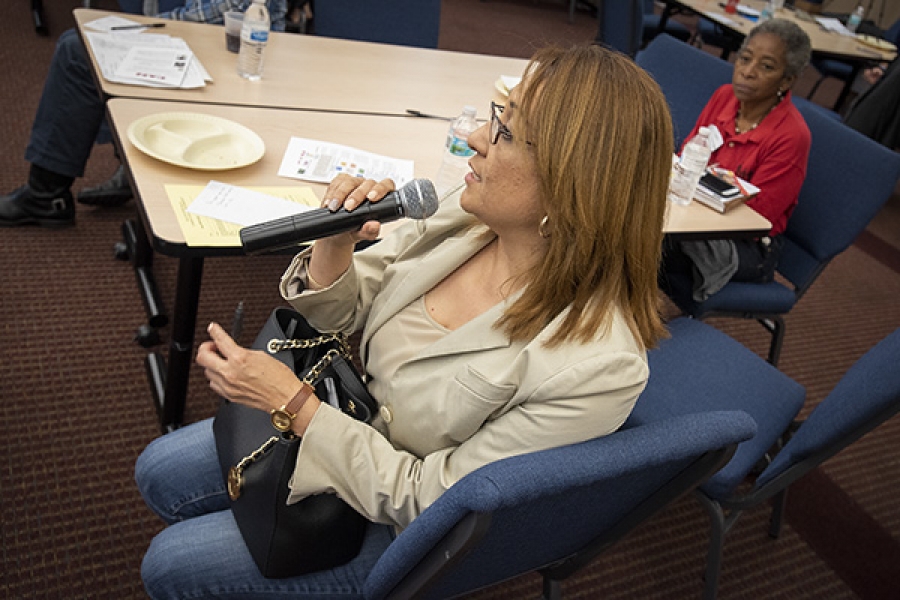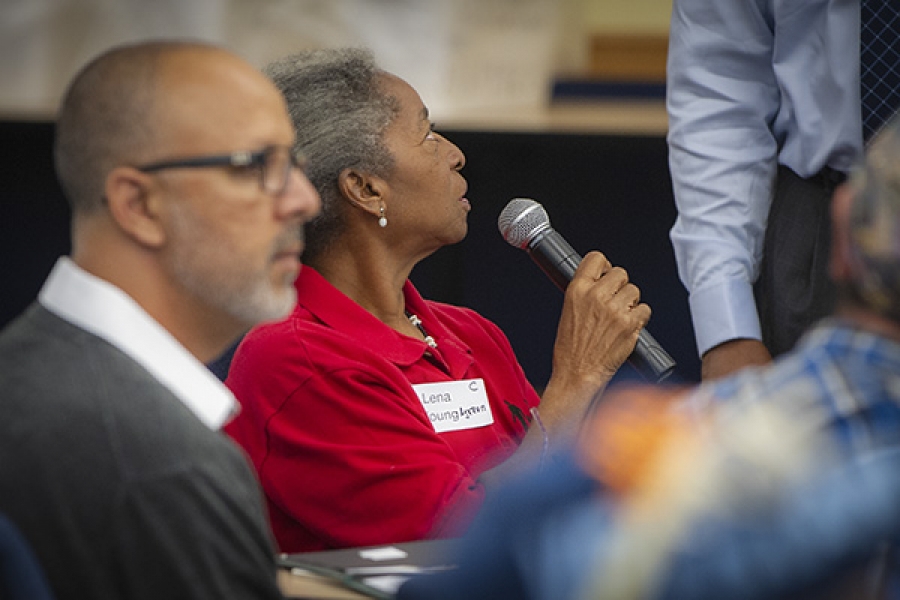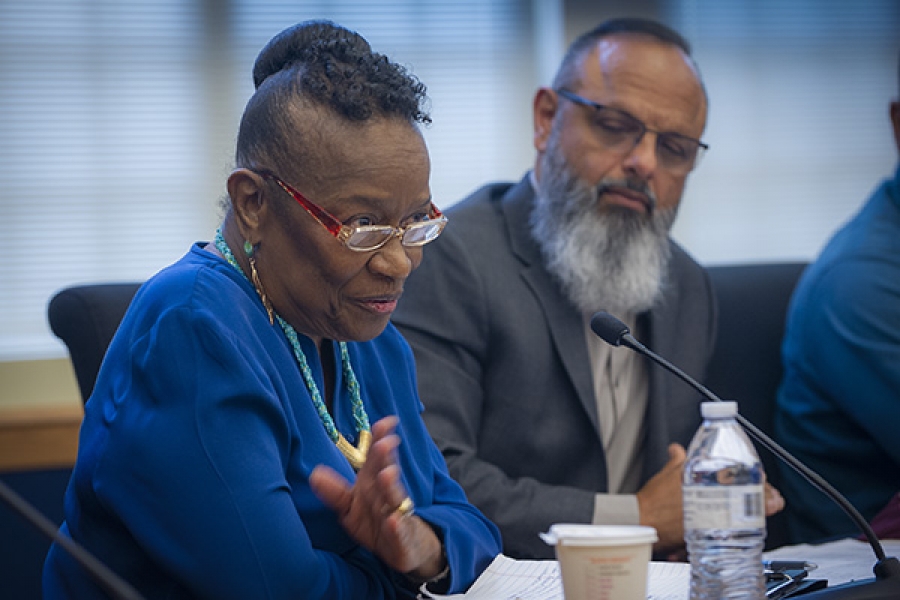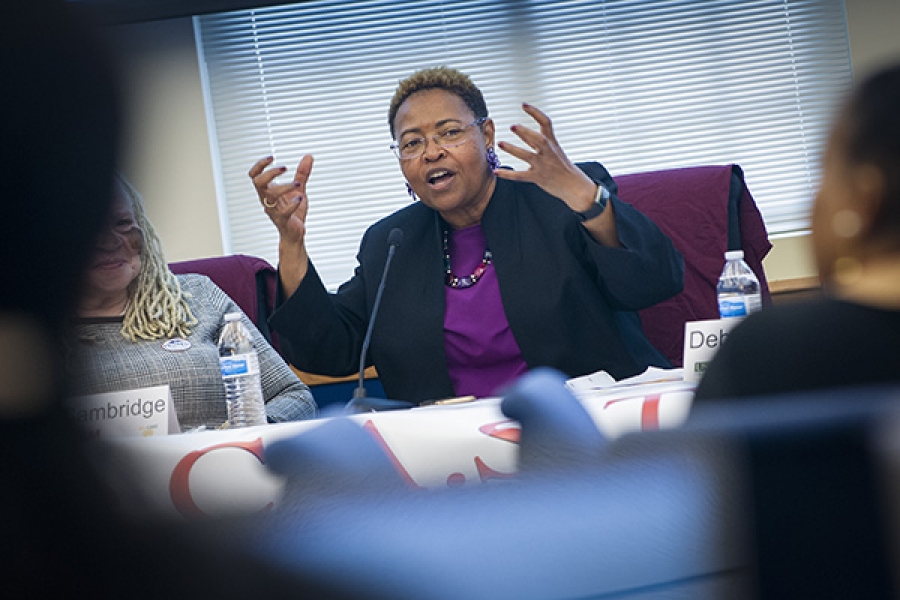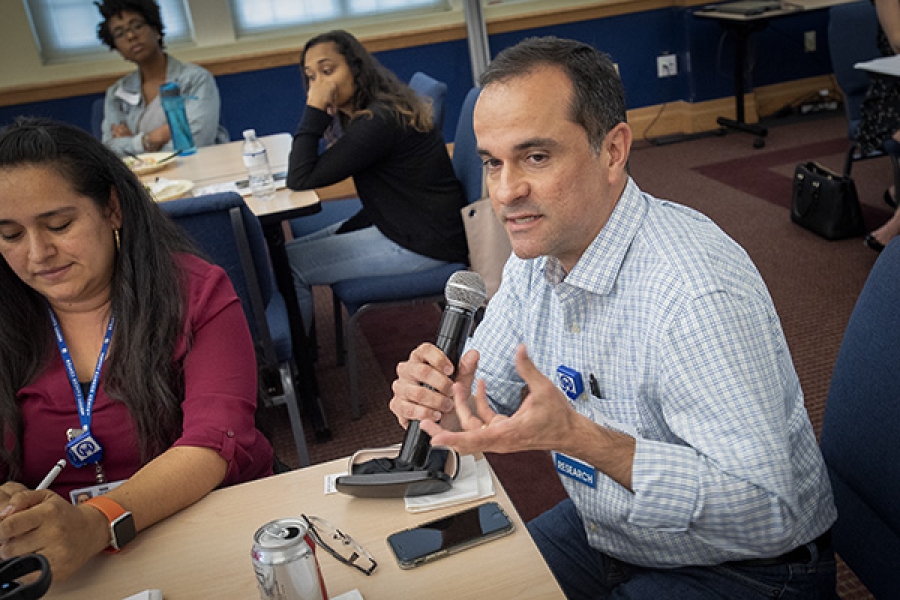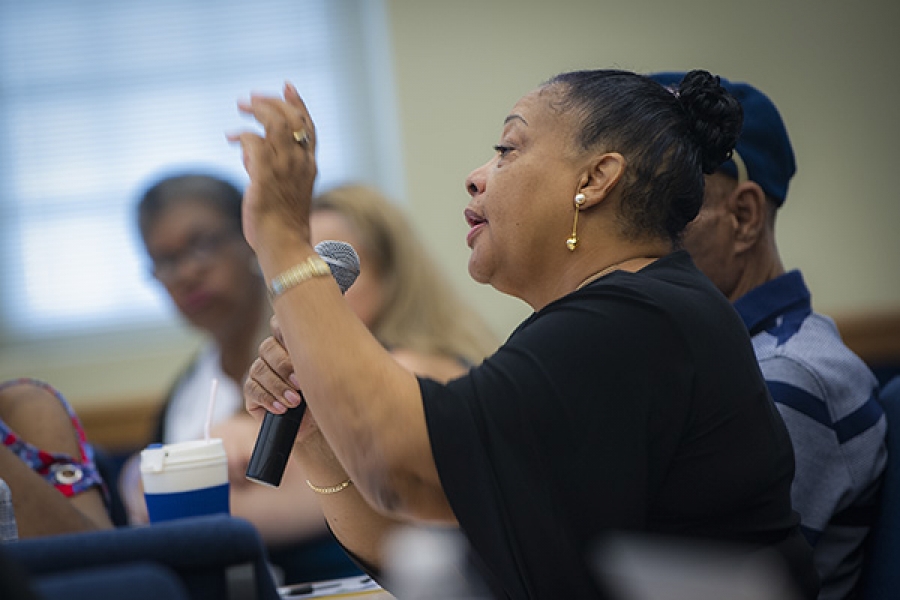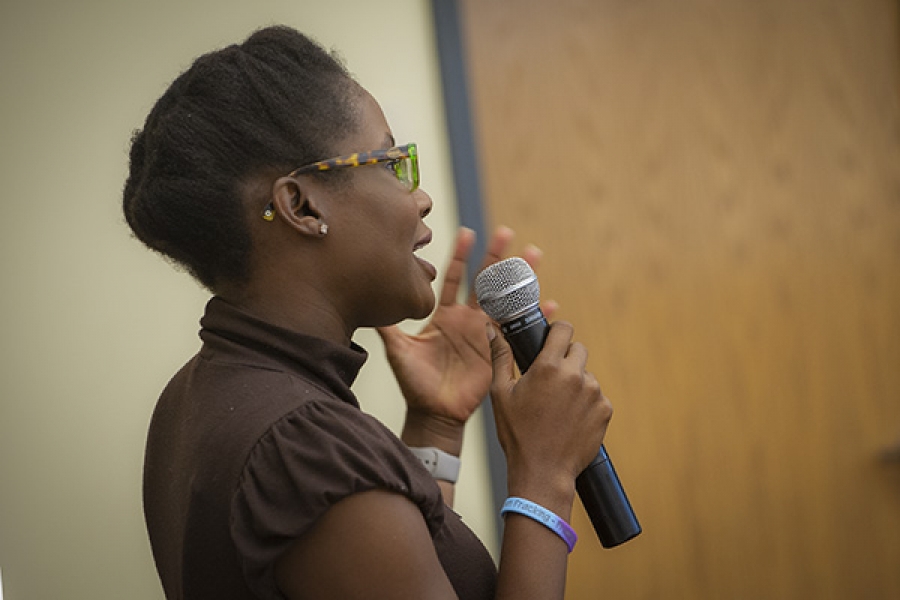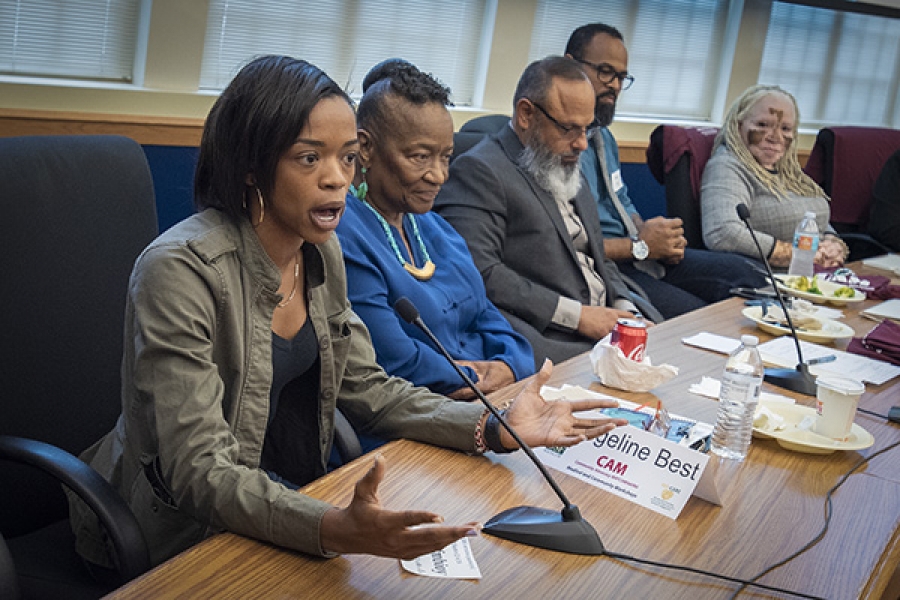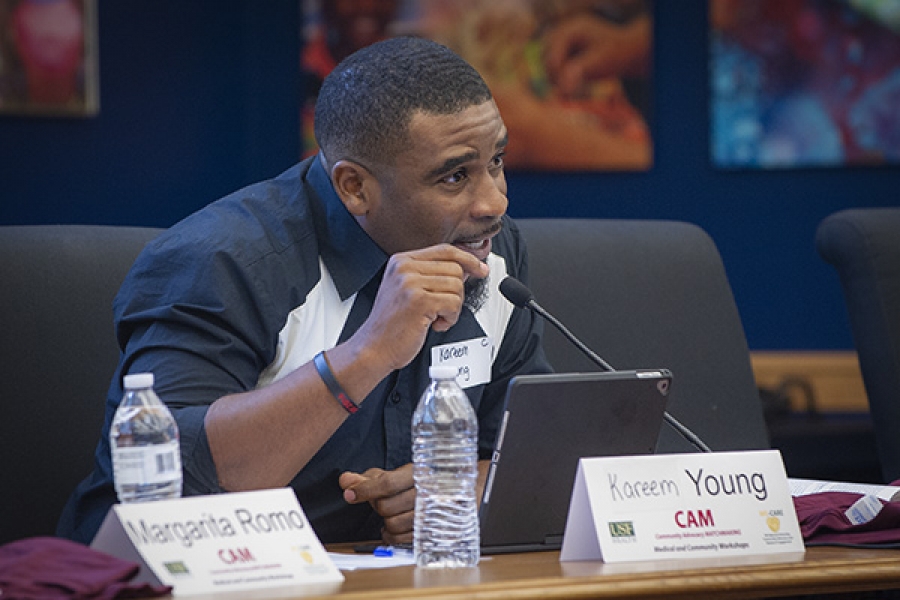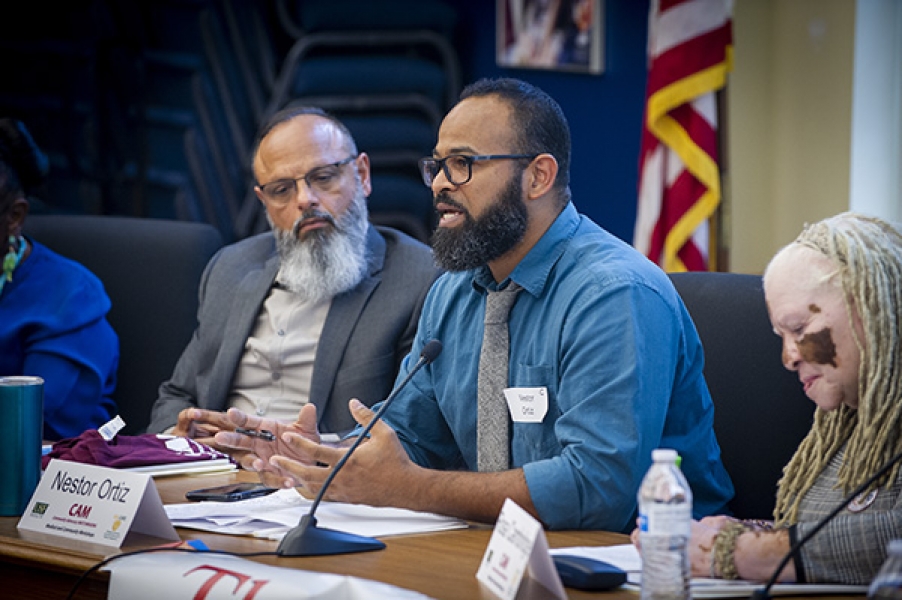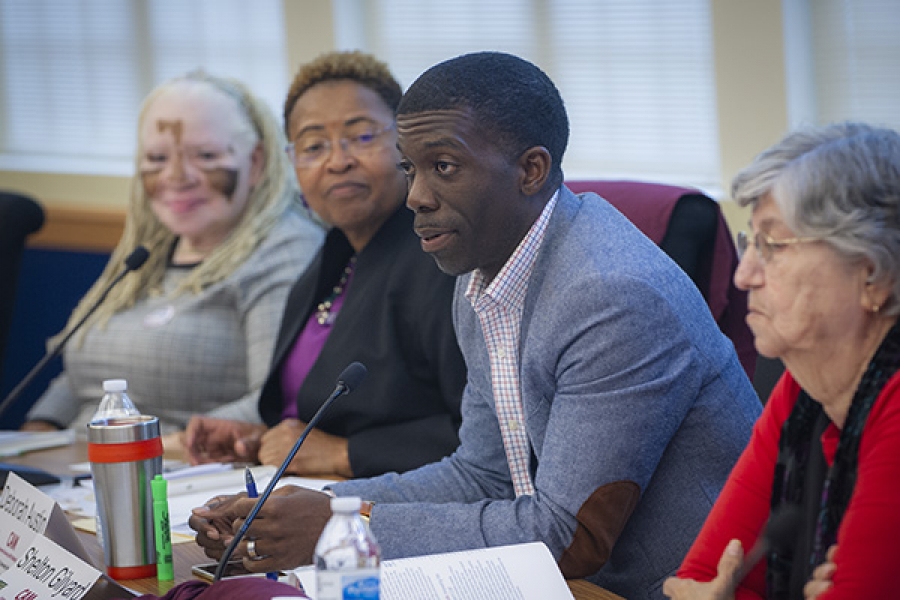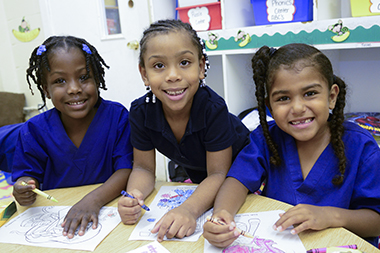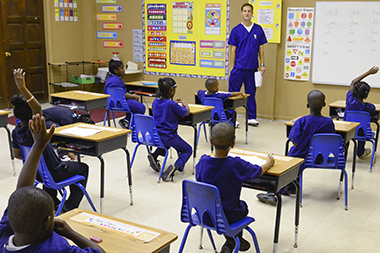]]>
USF researchers and clinicians heard valuable ideas for connecting with community groups and recruiting more minorities for clinical trials when they attended a community advocacy workshop earlier this month.
The program was an exercise offered by USF Health WE-CARE, an initiative that aims to improve health outcomes among minority populations by increasing minority enrollment and participation in research.
“We are going to cast a broad net to all groups to make sure we are making every attempt we can to capture people and introduce them to your research,†said Kevin Sneed, PharmD, dean of the USF Health College of Pharmacy, senior vice president of USF Health, and director of WE-CARE (Workgroup Enhancing Community Advocacy and Research Engagement).
“We have to build trust and co-create solutions. And we need all of you, the researchers and the community, to shorten the bridge that will get us together and make sure we’re communicating.â€
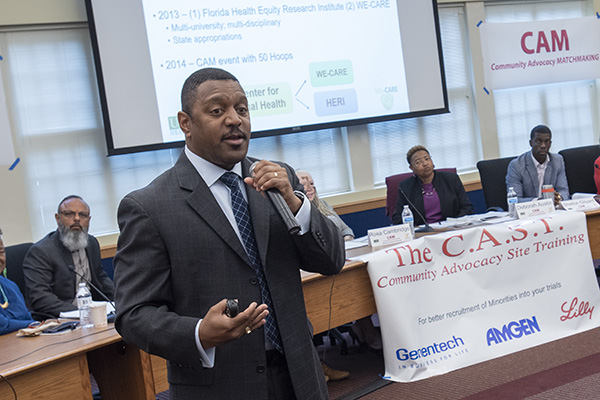
Dr. Kevin Sneed welcomes attendees at the WE-CARE, CAM workshop.
WE-CARE is helping build part of that bridge by connecting clinical researchers with community groups in hopes that more minorities will enroll in research. Clinical trials have historically lacked participation by people from minority populations, skewing research results to reflect presumed outcomes for predominately white and male populations. While African-Americans, Latinos, Asians and mixed sub-groups make up almost 40 percent of the U.S. population, current clinical trial demographics do not reflect that same diversity – non-whites account for less than 5 percent of clinical trial participants.
This narrow pool of DNA variants equates to limited samples for researchers to study as they develop new treatments, and thus limit information on the true effectiveness and on the risks of these treatments in minorities.
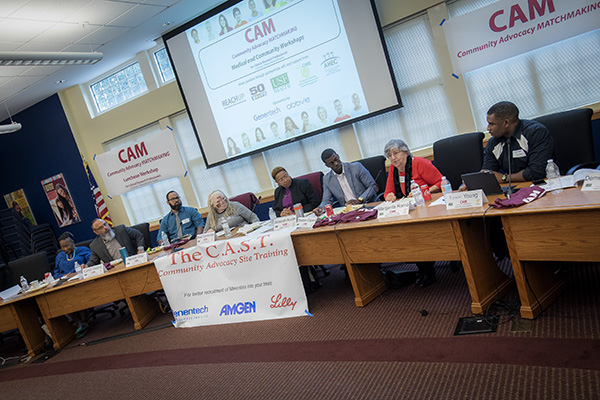
WE-CARE, CAM workshop panelists.
Part of the WE-CARE mission is to act as a resource for reviewing research studies and guiding researchers in potential ways of adjusting their effort to incorporate more minorities in their studies. Researchers can submit an abstract to WE-CARE, which goes to the group’s review board and, if approved, WE-CARE will help connect with Tampa Bay area community groups to help with recruitment.
“We can help you find people from underserved, underrepresented groups here in the Tampa Bay area,†Dr. Sneed said to the audience that included many researchers from USF Health and Moffitt Cancer Center.
Both Dr. Sneed and program panelists – made up of leaders from community advocacy groups and non-profit organizations from across the Tampa Bay area – urged researchers in the audience to remain cognizant of the patient’s perspective and to always consider them as individuals.
“The number one thing you can do is to buy into their humanity first,†Dr. Sneed said.
The Nov. 2 workshop was the second event hosted locally aiming to advance clinical research by increasing minority enrollment. About three years ago, a similar workshop was hosted, inspired by and in partnership with 50 Hoops, a national effort for outreach focused mostly on increasing minority male enrollment in clinical trials for prostate cancer. The recent workshop hosted by WE-CARE is based on the CAM model (Community Advocacy Matchmaking) designed by 50 Hoops.
Another concern voiced at the workshop was lack of follow through, and that if researchers want more minority enrollment they will have to engage far more frequently.
“Report back,†Dr. Sneed urged everyone researcher in the room.
“The number one complaint (I hear) is that researchers came into a community, collected, and never came back into the community to give an update. They never heard the result of anything.â€
Photos by Eric Younghans, video by Torie Doll, story by Sarah Worth.
]]>
]]>
Like students in most schools, a group of elementary students in East Tampa started classes last month excited about the year ahead.
But this group is a little different. Uniforms are scrubs. Guest speakers are doctors, nurses, and the like. And field trips will be to area laboratories and maybe hospitals.
This group is the inaugural class for the King’s Kids Academy of Health Sciences, a new charter school putting an emphasis on health sciences and aiming to build a pipeline for healthcare professionals who will help ease the shortage of healthcare providers, especially minority professionals.
King’s Kids Academy of Health Sciences (KKAHS) earned approval to open from the School Board of Hillsborough County earlier this year. The school is targeting underserved low-income school-age students of the East Tampa area.
In designing its extensive curriculum that includes modules for learning about health and sciences and inspiring students to consider health careers, KKAHS has connected with many community health groups, including USF Health. Lennox Hoyte, MD, associate professor in USF’s Department of Obstetrics and Gynecology at the Morsani College of Medicine, is acting as a mentor to the program, and sees the school as a good way to help ease the shortage in healthcare providers.
“It is important for these young kids to see a pathway for becoming healthcare professionals,†Dr. Hoyte said. “And starting early – demonstrating, as well as experiencing, aspects of health careers – is an ideal model for keeping that pathway open. There is a dramatic shortage of healthcare professionals, especially minority healthcare professionals. So a curriculum like this can provide a high payoff for the community, the region, and the state, as well as the individual.â€
In addition to Dr. Hoyte, pre-med students, medical students and faculty can be mentors and /or tutors, plugging into the school as guest speakers, helping on career days, offering support for various science and health projects, etc. As the school grows (it is starting with kindergarten, first and second grades only), the partnership has the potential to expand, as well.
“We are very excited to connect with USF Health and see USF students come in and work with our children,†said Maria Stroud, director of KKAHS. “It is so important to have them there to instill in our kindergartners, first-, second- and third-graders the message that they can define who they will be, even at this young age, and say to them ‘hey, you can start building on this now.’ That’s a magnificent message.â€
Also helping bridge the charter school with USF is Hiram Green, director of Community Engagement, who serves on the KKAHS board of directors.
“As we work to transform healthcare, it is important for us to connect with our various communities and to use our intellectual capital to make them better,†Green said. “A school such as this could help implement a reversal of debilitating conditions, such as obesity, heart disease, strokes, diabetes, infant mortality, and other chronic diseases that continue to plague our community. Starting with these children, we have an opportunity to put in their minds early, the necessity for good nutrition and the knowledge of science, things they will need in the future, whether they go into healthcare fields or not. Just for the betterment of themselves.â€
For more information about the free, public school, and to enroll your child (KKAHS is still accepting students), visit King’s Kids Academy of Health Sciences web site.
Photos by Eric Younghans, USF Health Communications
]]>
